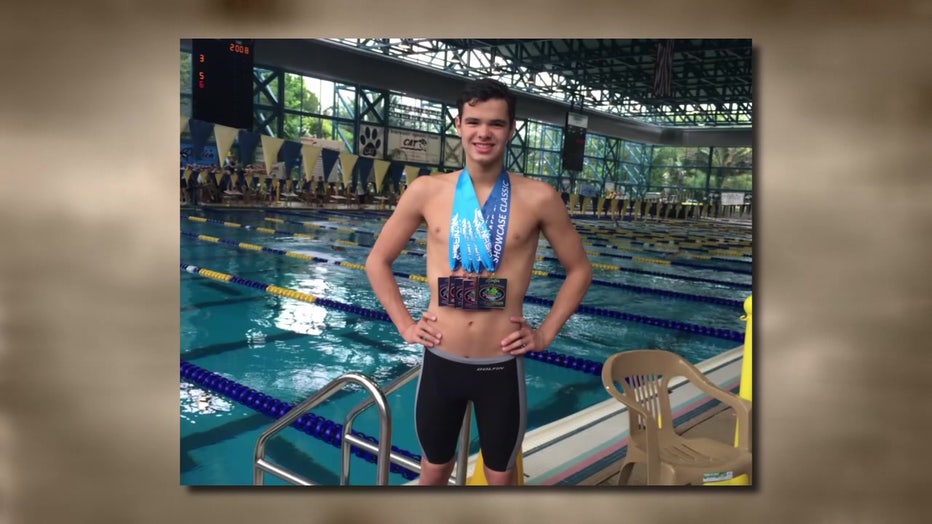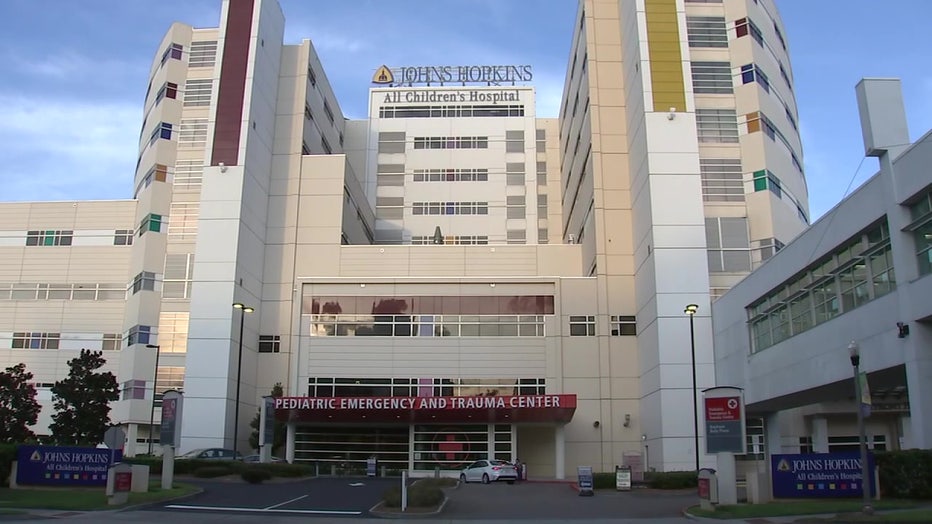More children showing up to hospitals with suicidal thoughts, new report finds

Report finds increase in children showing up to the hospital for suicidal thoughts
Briona Arradondo reports
TAMPA, Fla. - If you or a loved one is feeling distressed, call the National Suicide Prevention Lifeline. The crisis center provides free and confidential emotional support 24 hours a day, 7 days a week to civilians and veterans. Call the National Suicide Prevention Lifeline at 988 or 1-800-273-8255. Or text HOME to 741-741 (Crisis Text Line).
CLICK HERE for the warning signs and risk factors of suicide. Call 1-800-273-TALK for free and confidential emotional support.
As more people open up about their mental health, a new report found an increase among children nationwide thinking about suicide and attempting suicide, including in the Tampa Bay area.
Counselors said the concerning trend is a result of the pandemic impacts, social media, bullying and other factors. Jody Sanders, whose 15-year-old son Vance took his own life eight years ago, works to raise awareness about suicide and prevention.

Jody Sanders 15-year-old son Vance took his own life eight years ago. Now, she works to raise awareness about suicide and prevention.
"Essentially, our world ended as it was, and we had to relearn how to live again as a family of five instead of a family of six. It shakes you to the core of your soul," said Sanders. "As a parent in today's society and social media and other powers that seem to revel around our children, you have to be vigilant."
PREVIOUS: Three high school hockey players suspended after 16-year-old takes her own life, parents say
More parents are seeing their children in crisis. A new report in the Pediatrics journal found an increase in children showing up to the hospital for suicidal thoughts.
"My 2020 numbers compared to 2021, we saw a doubling of patients presenting to our emergency center in hospital requiring a Baker Act because of suicidal thoughts, suicidal ideation or an attempt," said Jennifer Katzenstein, Ph.D, the co-director of the Center for Behavioral Health at Johns Hopkins Children's Hospital in St. Petersburg.

Katzenstein said the significant trend continued this year, and they expect the same in 2023.
RELATED: For the first time, task force recommends anxiety screenings for children as young as 8
"As interestingly, when I talk to teenagers, lots of concerns surrounding gun violence, being safe at schools and also climate change in the socio-political nature and current societal concerns that they see every day," said Katzenstein.
The Crisis Center of Tampa Bay said its 988 lifeline takes about 14% of its calls from children. Crisis Center counselors said warning signs to watch for include any changes in behavior like eating, sleeping, feelings of hopelessness and being irritable.
"Kids brains aren't nearly as developed, obviously, as adults, so they don't necessarily have the mental capacity or just the experience to be able to cope with some of everyday life's challenges," said Clara Reynolds, the president and CEO of the Crisis Center of Tampa Bay.
READ: Lived trauma drives Crisis Center of Tampa Bay CEO's passion for helping others

Psychologists urge parents to talk with their kids about suicide and listen.
"Families oftentimes and their kids wait 10 years, 50% of kids will wait 10 years for treatment," said Katzenstein.
Catching the signs and symptoms early are important points that parents like Sanders hope others will take away.
"You're very loved. You are very, very loved. People do care about you, and you don't need to take your life," said Sanders.
MORE: Dwayne ‘The Rock’ Johnson opens up about mental health: ‘You gotta ask for help’
Johns Hopkins All Children’s Hospital said most of the kids coming into the emergency room in crisis are kids who either attempted suicide or the children told their caregiver they are having suicidal thoughts. Katzenstein said the parents bring their children to the hospital, because they don’t know where to go.
If you or a loved one is feeling distressed, call the National Suicide Prevention Lifeline. The crisis center provides free and confidential emotional support 24 hours a day, 7 days a week to civilians and veterans. Call the National Suicide Prevention Lifeline at 988 or 1-800-273-8255. Or text HOME to 741-741 (Crisis Text Line).
CLICK HERE for the warning signs and risk factors of suicide. Call 1-800-273-TALK for free and confidential emotional support.

